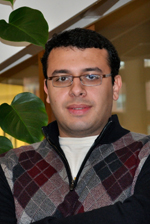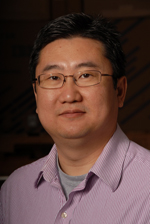CSC News
Air Force Supports Embedded Systems Research

 Dr. Peng Ning, professor of computer science, and Dr. Ahmed Azab, senior research associate, at NC State University, have been awarded $40,000 by the US Air Force – Research Laboratory/Intelligent Automation Inc. to support the research proposal titled “A Trusted Computing Framework for Embedded Systems.”
Dr. Peng Ning, professor of computer science, and Dr. Ahmed Azab, senior research associate, at NC State University, have been awarded $40,000 by the US Air Force – Research Laboratory/Intelligent Automation Inc. to support the research proposal titled “A Trusted Computing Framework for Embedded Systems.”The award will run from June 8, 2012 to September 1, 2012.
Abstract – The damage and loss caused by attacks and security breaches have drawn attentions to develop secure and reliable systems for embedded systems. Compared to their desktop counterparts, embedded devices are facing more security challenges, such as the more possible physical access to a target device and more constrained computing environment (e.g., limited RAM and CPU power). Together, these challenges lead to a favorable hardware/software co-design approach to deal with security issues for embedded systems. This proposal presents a trustful computing framework based on hypervisor for embedded systems.
Our framework is a hybrid approach consisting of both hardware and software components. The trustworthiness of our approach roots from a hardware-based root-of-trust device. The root-of-trust device provides key security capabilities, such as the secure system initialization and physically isolated code execution, which cannot be achieved by a pure software-based solution. On top of the root-of-trust device, our approach provides a trustful boot-loader, which measures and attests the static integrity of the software and hardware components of the target embedded systems. The trustful boot-loader executes a trustful hypervisor that provides a virtual environment for Commercial Off The Shelf (COTS) Operating Systems (OS) and applications. The trustful hypervisor provides many security features, such as the high flexibility and dynamic attestation, which cannot be achieved by a pure hardware-based solution. In particular, the trustful hypervisor leverages the HIMA technology, a previous effort from North Carolina State University, which dynamically checks the security integrity of running OS and applications. Based on the trustworthy components, our trustful computing framework will provide an efficient, flexible and secure computing environment for embedded systems.
For more information on Dr. Ning, click here.
~coates~
Return To News Homepage